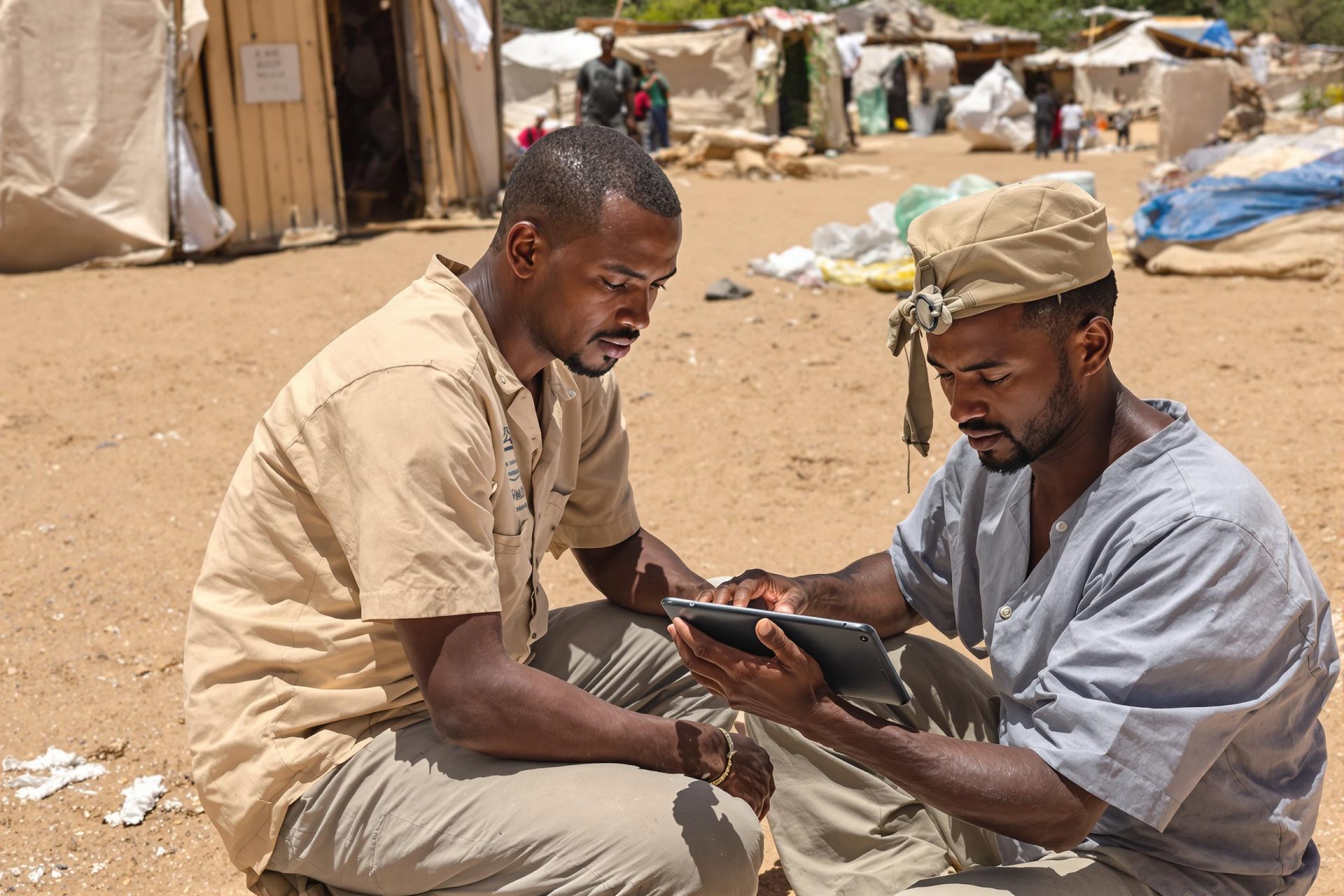Key Takeaways
- Mercy Corps, a global aid organization, has deployed an innovative AI tool to support its field workers.
- Called “Methods Matcher,” the tool swiftly sifts through past project data and research to provide proven solutions.
- This technology helps aid workers make quicker, data-driven decisions during critical humanitarian crises.
- The tool was developed in partnership with software company Cloudera, facilitated by the Tech To the Rescue program.
Humanitarian aid organization Mercy Corps is using artificial intelligence to give its field workers rapid insights, helping them make life-saving decisions faster during crises.
Founded in 1979, Mercy Corps operates in over 40 countries, aiding communities affected by poverty, disaster, conflict, and climate change. Most of its roughly 4,000 staff are local to the areas they serve.
In many developing regions, agricultural problems like droughts or crop failures can quickly turn into major humanitarian emergencies. Mercy Corps has deep experience in anticipating and mitigating these situations.
However, getting reliable, timely data to the right people on the ground has often been a challenge. Alicia Morrison, Mercy Corps’ director of data science, saw how generative AI could help bridge this gap.
The aim was to create a tool that could offer aid workers fast, dependable answers to their daily questions, drawing from a wealth of past projects, research, and successful methods. Importantly, it would also provide sources, so users know where the information originates.
“Making that tool available to the people doing the work helps them learn from what’s been done and imagine new possibilities,” Morrison told Business Insider. “That’s when we get the most creative ideas.”
To bring this idea to life, Mercy Corps joined Tech To the Rescue’s AI for Changemakers program. This initiative connects non-profits with private sector tech partners.
Mercy Corps was paired with Cloudera, a software company specializing in data management and AI. Cloudera contributed engineering time and resources to develop the product, known as the AI Methods Matcher.
Rob Dickens, a solutions architect at Cloudera, said development took about seven weeks. The tool utilizes a type of AI that searches an archive of successful projects for relevant information, summarizes it, and then offers recommendations.
Now, crucial decisions made by aid workers—from assessing vegetation health to managing fertilizer distribution—can be guided by this data-backed system.
Morrison explained that Methods Matcher accelerates decision-making by cutting down the time needed for manual research through large amounts of information. Teams can quickly find actions that have worked in similar situations elsewhere.
For instance, if teams need to provide cash aid in a country with high inflation, they must determine the right amount for it to be effective. An aid worker could ask the tool how to calculate this.
Methods Matcher would then provide a tailored answer based on past Mercy Corps projects and research. Workers can even ask follow-up questions, as the tool remembers the conversation, allowing for deeper exploration without restarting.
This empowers field teams to access information quickly without always needing to wait for support from headquarters. “They can see for themselves how valuable this kind of information can be,” Morrison noted.
Since the tool’s launch in November 2024, Morrison reports strong early adoption among field teams, although formal metrics on its impact are still being compiled. Mercy Corps is now working with Cloudera to expand Methods Matcher and develop other AI tools.
The organization is also actively gathering feedback from staff to refine the tool. “We’re a nonprofit, so we don’t have a big team of in-house AI experts,” Morrison said. “We’re learning as we go.”
Despite recent funding shifts, Mercy Corps views Methods Matcher and other AI tools as a “priority investment area.”
Looking ahead, Dickens mentioned Cloudera plans to enhance the tool by enabling it to automate tasks like gathering real-time data, analyzing trends, and generating reports. This could involve surfacing relevant news and social media reports from affected areas, making the tool even more responsive to unfolding events.
“Aid workers will get richer, real-time context instead of manually compiling daily or monthly reports,” he added.



